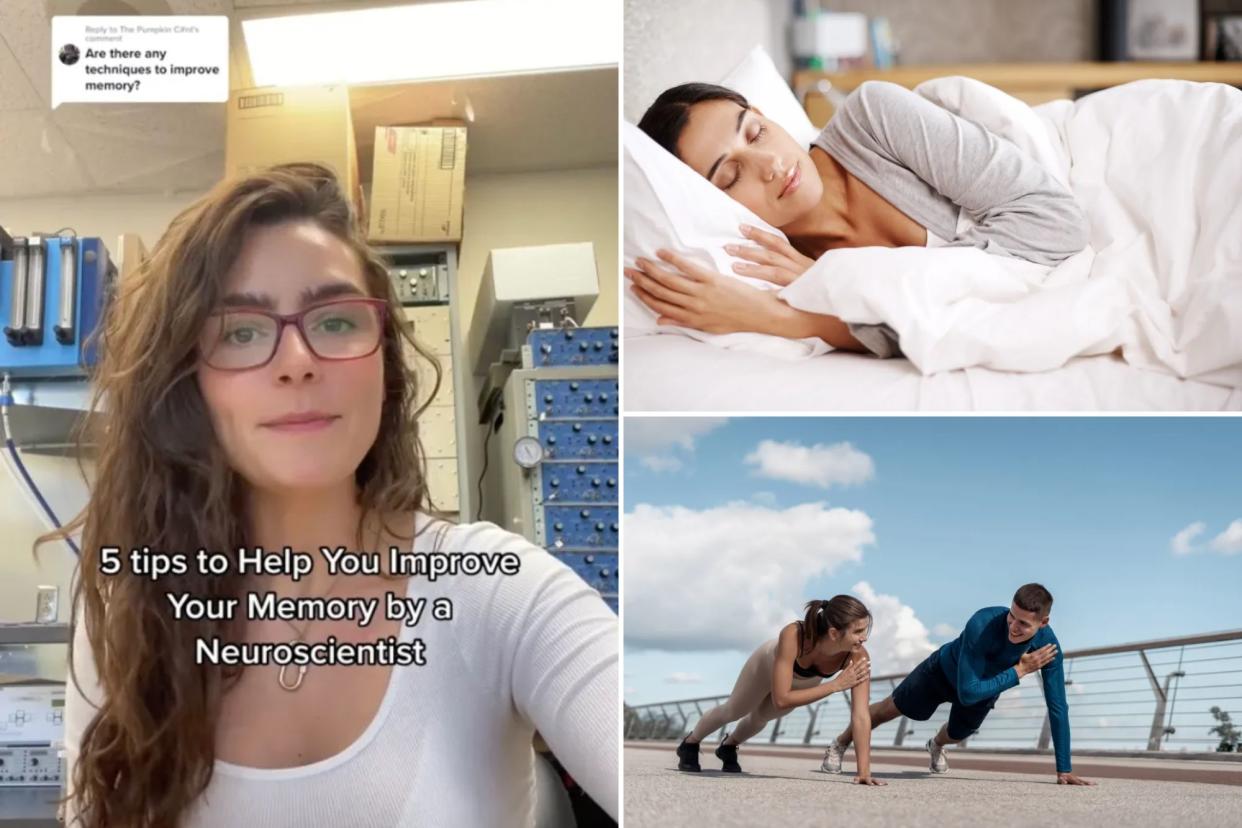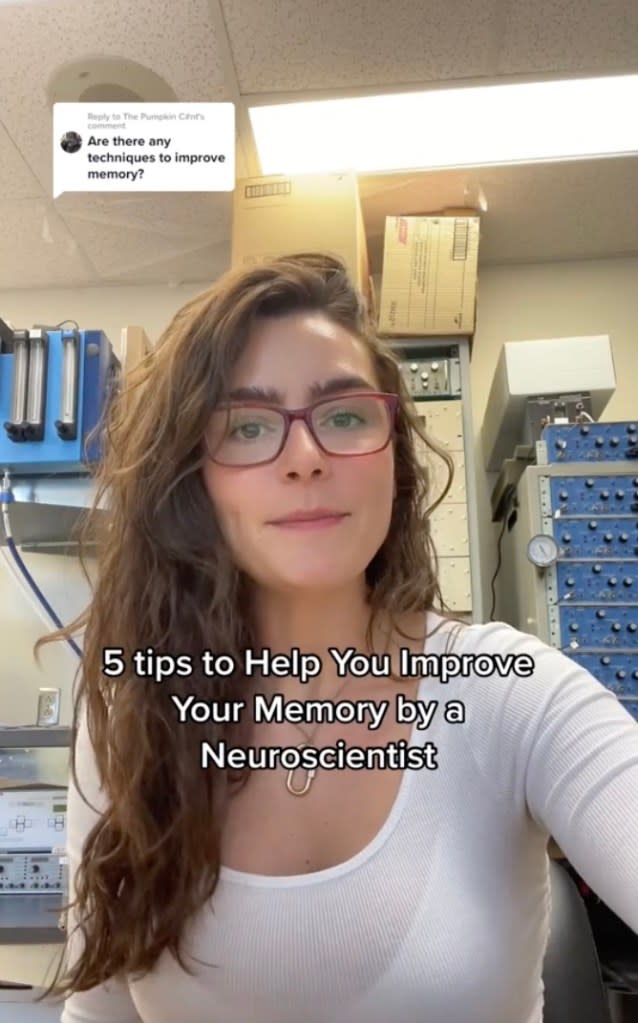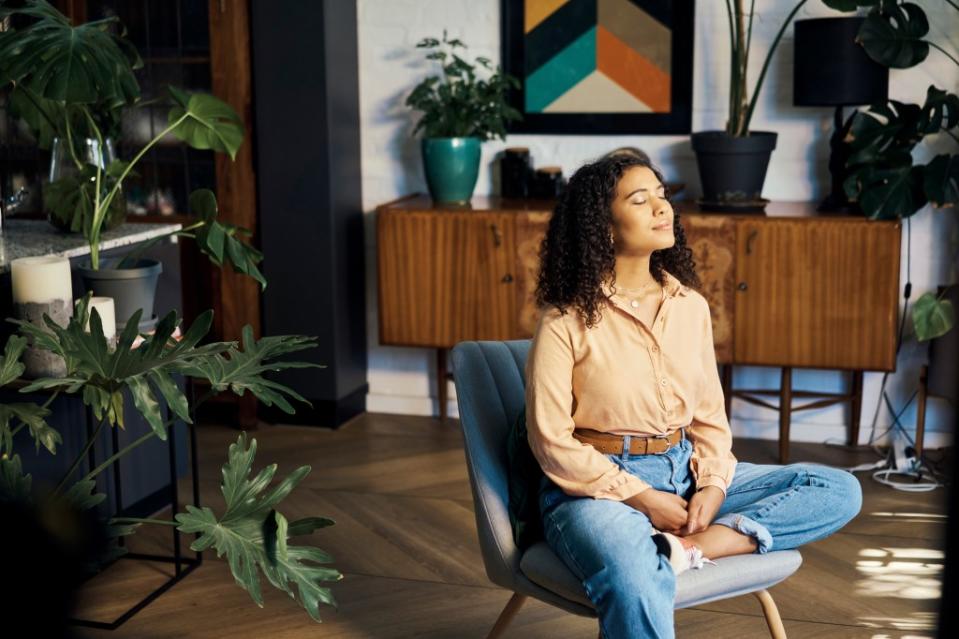I’m a neuroscientist — make these 5 lifestyle tweaks to improve your memory

You won’t want to forget these tips.
A neuroscientist is revealing five simple things you can do every day to stimulate your brain and improve your memory — from getting eight to 10 hours of sleep a night to practicing mindfulness.
Brain health is a critical but often overlooked aspect of our overall health and well-being — protecting it can potentially reduce the risk of developing Alzheimer’s disease and dementia, which is on the rise.

An estimated 6.7 million Americans 65 years and older had Alzheimer’s disease in 2023, according to the Alzheimer’s Association. Younger people can get the condition as well.
Neuroscientist and mental wellness coach Rachelle Summers shared the healthy habits she encourages everyone to adopt, in a TikTok she posted last year that resurfaced this week.
Sleep

“Get enough sleep,” Summers advises. “It’s actually during the night, while we’re asleep, that we consolidate long-term memories.”
She added: “I recommend somewhere between eight to 10 hours per night.”
The Centers for Disease Control and Prevention suggests adults tuck themselves in for at least seven hours a night.
Many Americans are struggling to meet this important goal, but some Gen Zers are taking their sleep schedule very seriously.
Exercise

Summers also emphasizes the importance of a consistent workout routine — and be sure to include aerobic exercise.
Amazon's Big Spring Sale is HERE!
“Aerobic exercise has been shown to improve memory in both young and old adults,” Summers noted.
Aerobic exercise — or cardio — is any physical activity that increases the heart rate and oxygen flow throughout the body to produce energy, like walking, running or swimming.
Summers explained that these movements get blood flowing to the brain to support its function.
Mindfulness

Summers also listed mindfulness as a great way to boost brain health.
Mindfulness is the practice of focusing on your mind and body to fully sit in the present moment.
“Mindfulness has been shown to increase the thickness of the prefrontal cortex — a region of the brain that’s associated with attention and memory,” Summers shared.
She encourages people to meditate or write in a journal to practice mindfulness.
Brain-boosting activities

“Activities that challenge your brain — like learning a new language or learning to play an instrument can enhance memory performance,” Summers said.
“These activities stimulate the brain and can promote the growth of new neural connections,” she continued.
Retrieval

Working on retrieval will help keep you sharp, Summers counseled.
“That means practicing recalling things from memory without using Google,” she said.
Doing this strengthens the connections holding your memory and knowledge in your mind, making it more likely that you’ll be able to recall it in the future.
A fun way to put this into play is to do trivia.

